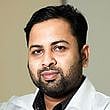UAE: New survey in Ras Al Khaimah finds widespread misuse of antibiotics
Self-medication very common, which could be contributing to drug-resistant infections

Abu Dhabi: A study in Ras Al Khaimah has revealed that almost half of the respondents self-medicate with antibiotics.
The American University of Ras Al Khaimah (AURAK) research, which polled 306 residents in the emirate, also found that more than half of the respondents believe that antibiotics can be used to treat viral infections.

Findings
Of the 306 Ras Al Khaimah respondents, 49 per cent reported having self-medicated using antibiotics at least once. Nearly 32 per cent of the respondents admitted they had also purchased drugs from the pharmacy to treat bacterial infections without a prescription in the last two years.
Also, more than half of the participants - 52.9 per cent – said they believed that antibiotics can be used to treat viral infections with symptoms like viral fever. This incorrect use of antibiotics contributes to antibiotic resistance, which is especially worrying when it comes to the treatment of severe bacterial infections.
“As a university committed to conducting research into critical topics, we are happy that our researchers have touched on a topic that is of vital importance in modern healthcare. The findings are highly relevant to efforts to limit antibiotic resistance in this part of the world,” said Professor Stephen Wilhite, senior vice president for academic affairs and student success/ provost at AURAK.
“We are happy to have gathered some vital data on the spread of antibiotic resistance, and thus guide policy makers on what needs to be done to tackle this very serious health issue. Though confined to the emirate of Ras Al Khaimah, we believe the trends would be similar across the UAE. We do hope that people at large and medical practitioners in particular act suitably to limit antibiotic resistance,” added Dr Mohamed Al Zarooni, associate provost for research and community service at the university.
The research was conducted by senior academics and a group of students from AURAK’s Department of Biotechnology.
Public health threat
According to global studies, antibiotic resistance is one of the most serious threats to public health. Antibiotic resistance happens when microorganisms like bacteria, viruses and fungi develop the ability to defeat the drugs designed to kill them. This means that the germs continue to multiply and infect the body’s systems.
Antibiotic resistance leads to extended hospital stays, increased healthcare costs, and an increase in morbidity and mortality, the study noted.
Follow up action
The researchers also surveyed major pharmacies within Ras Al Khaimah to identify whether the policies on dispensing antibiotics were followed. They came to the conclusion that the main reason for antibiotic resistance was the overuse or improper use of antibiotics in the health system. Other potential factors include the limited awareness among some prescribers, their past practices with regard to prescribing antibiotics, patient expectations, pharmaceutical marketing, and the sale of antibiotics without a prescription.
The researchers recommended that each healthcare entity should have a policy to minimise antibiotic resistance. They also advised that healthcare entities need to educate the public, and constantly remind healthcare providers about the consequences of antibiotic resistance.
The AURAK team further contributed to developing robust health education programmes, which subsequently were delivered across Ras Al Khaimah to raise public awareness regarding proper antibiotic usage.
Sign up for the Daily Briefing
Get the latest news and updates straight to your inbox



